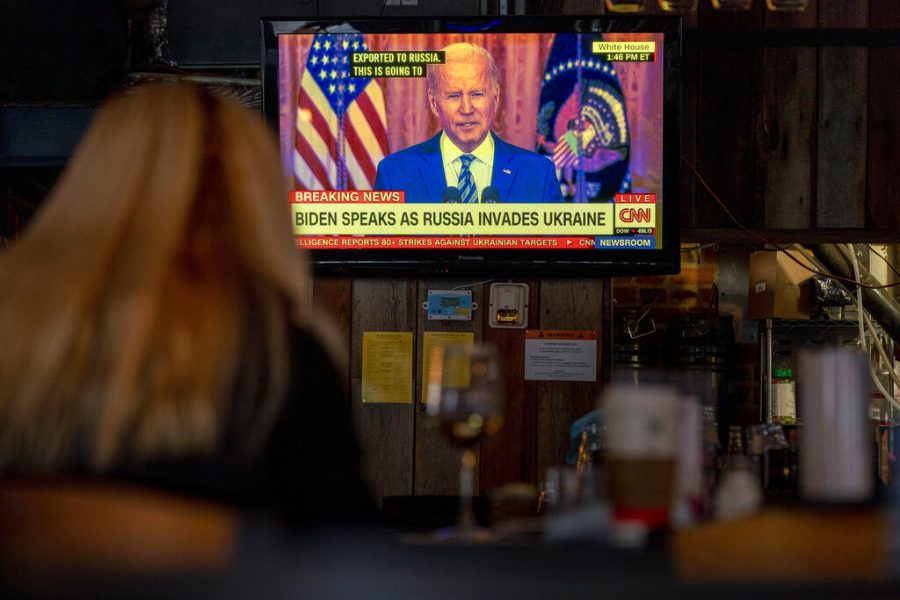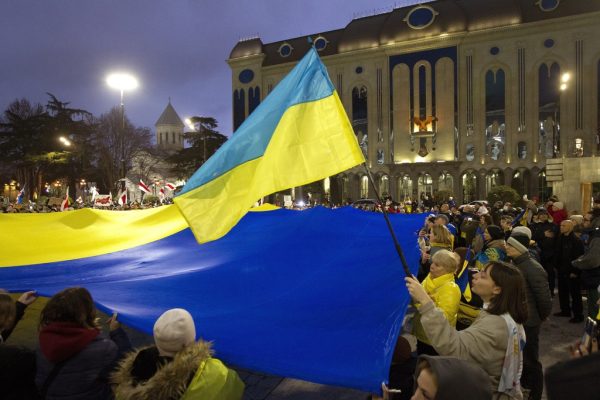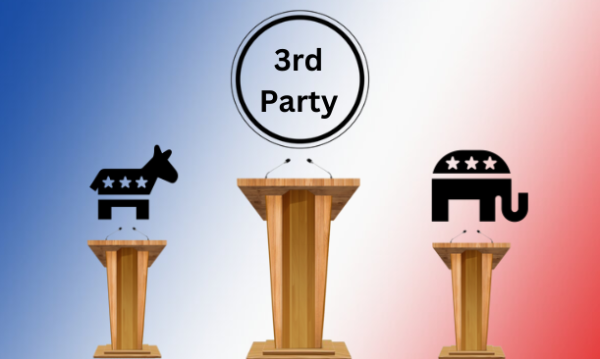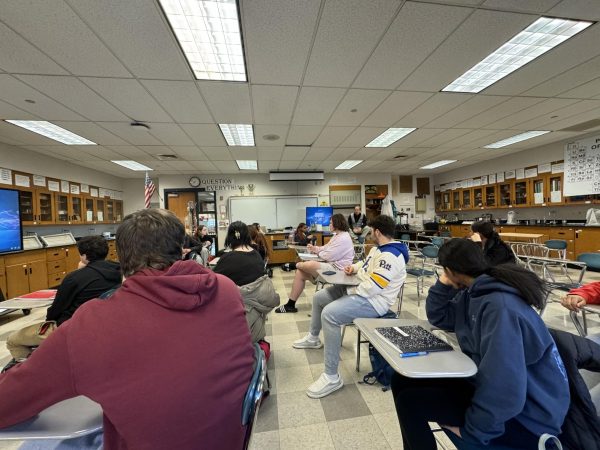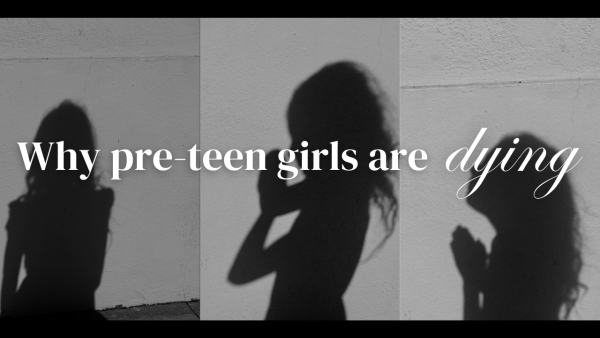OPINION: Rare glimpse of bipartisanship offered in face of Ukraine crisis
President Joe Biden speaks about Russia’s invasion of Ukraine on a television at Shaws Tavern in Washington, Thursday, Feb. 24, 2022. (AP Photo/Andrew Harnik)
Opinions expressed in the Op/Ed section of The Knight Crier are not necessarily reflective of the views of the entire staff of the KC.
In today’s political climate of attacks from one party to another, to even those in a party attacking those in the same party, albeit not as extreme as its other members, a moment of bipartisanship is something to be savored. However, when this does occur, it would be accurate to assume that it would be under extreme circumstances. In the past few weeks, we’ve seen just this throughout the escalation of the crisis between the Ukraine and Russia, with it all coming to a head with Russia officially launching attacks and a declaration of war against the Ukraine on Feb. 23rd, 2022.
In the past few years, Russia and Ukraine have increased tensions between each other, with Ukraine wishing for its independence and to join NATO, and with Russia believing that it has ownership of the land and would view the nation’s NATO membership as a provocation towards it. As the Russian invasion of Ukraine officially kicks off, NATO’s allies, including the U.S. have sprung to action, condemning their attacks and launching sanctions against Russia.
The U.S., however, was split as to how effective its own leadership would be when it came to taking action against the violence from the Russian side. Surprisingly, in an age of petty attacks between parties, it seems as though a moment of bipartisanship is shining through in this time of crisis.
South Carolina Republican Senator Lindsay Graham, who has been one of the most outspoken critics of the Democratic Party and supporter of former President Donald Trump and his efforts to overthrow the 2020 election, stated that “The emergency supplemental needs to help our allies, needs to provide more assistance to the Ukraine. We need to create a mechanism for Putin and his cronies to pay a heavy price to deter further aggression.”
Joining Graham is Democratic Senator Sheldon Whitehouse of Rhode Island in a bipartisan congressional delegation to Munich this past week, along with more than 20 senators across the aisle. They have stated that, “No matter what happens in the coming days, we must assure that the dictator Putin and his corrupt oligarchs pay a devastating price for their decisions.”
Another one of the GOP’s strongest allies, former President Trump’s strongest supporters, and one of President Biden’s heaviest critics, Senator Ted Cruz of Texas, offered rare praise of the president, stating, “President Biden made the right decision today. Allowing Putin’s Nord Stream 2 to come online would have created multiple, cascading, and acute security crises for the United States and our European allies for generations to come. Today’s announcement is critical to preventing such scenarios.”
The crisis will inevitably lead to higher prices on daily use items such as groceries, gas, and tech products. With these handicaps against the U.S. and global economy, tensions may begin to rise against political figures as they have in past months with inflation and the Biden administration. If production of some, if not all, of these resources begins to switch to nations not embargoed through a Russian conflict, however, prices rising may not become as much of an issue.
Looking back upon wars such as the Persian Gulf War and crises such as the September 11th attacks, presidents with relatively low approval ratings have seen their rankings approve in the wake of these tragedies. George H.W. Bush had a 59% approval rating immediately before Operation Desert Storm, and immediately after, enjoyed a peak 89% approval rating. His son, George W. Bush, had a 51% approval rating on September 10th, however, a week after the attack, he enjoyed a 91% approval rating. This “rally ‘round the flag effect” has historically been enforced in the wake of these tragedies, and if the U.S. intervenes in the Ukraine/Russia crisis, Biden’s approval rating may grow as well.
But what does this all mean for the future of our nation and its politics? Well, for starters, it can be assumed that if Russia escalates its attacks as it has insinuated it will, the U.S. and its allies will intervene, as they did in similar situations in the Korean and Vietnam wars, although President Biden has stated that troops will not be sent at this time. If troops end up being sent, Biden then becomes a wartime president, and, as wartime presidents often do, he will gain bipartisan support and heftier approval numbers.


